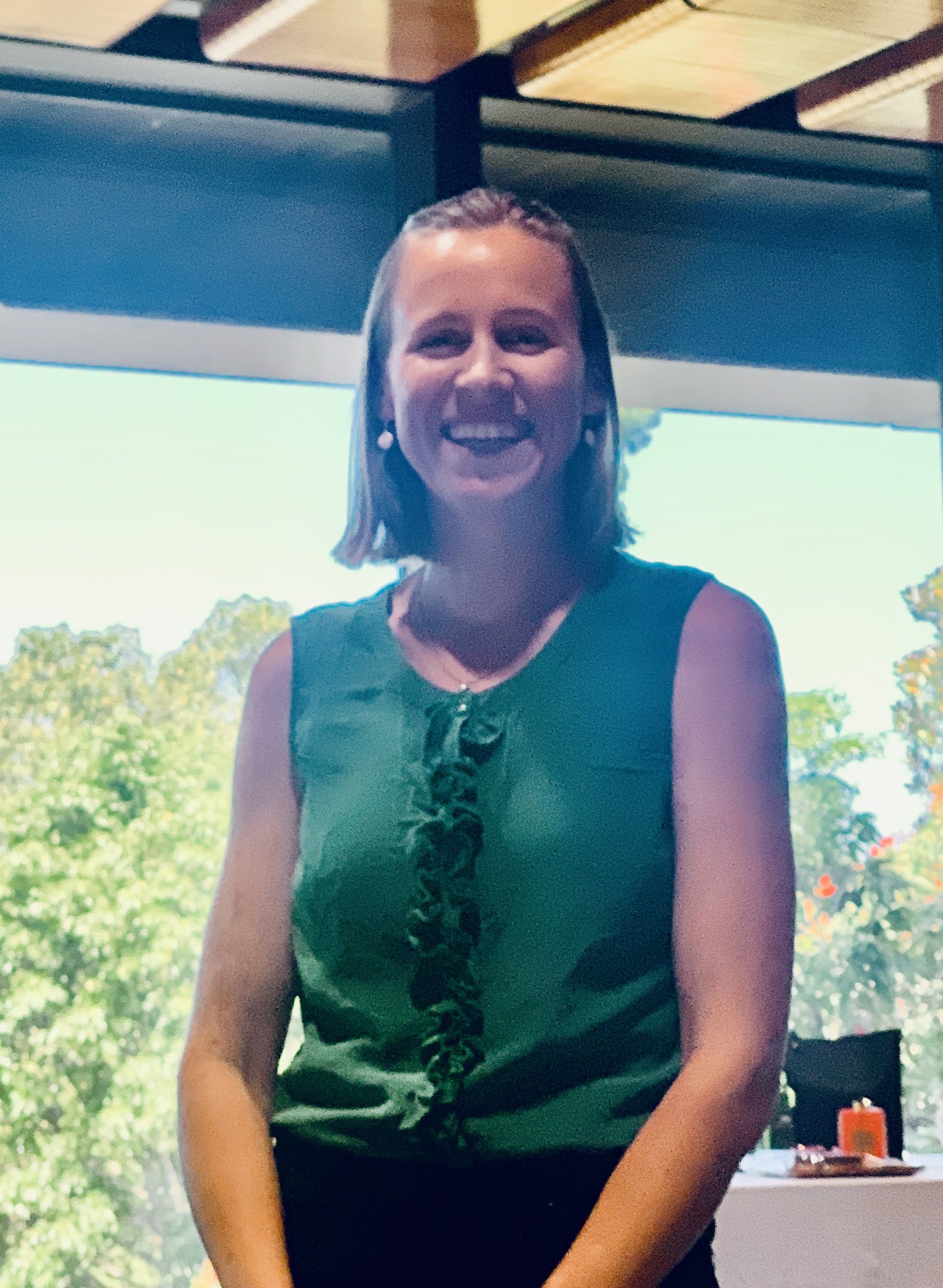
Empowering Women's Futures: The National Council of Women's Scholarship
$1,000 Award for Students Passionate About Reproductive Health
About the WPF Awards
The National Council of Women's Scholarship, administered by the Women's Plans Foundation (WPF), is dedicated to empowering future leaders in women's health.
What it is
This annual scholarship offers $1,000 to support your academic journey and fuel your passion for women's health.
Who it’s for
We award this scholarship to passionate Australian university students committed to improving reproductive health outcomes.
Why we offer it
WPF believes that access to family planning is a cornerstone of women's empowerment and development. By supporting future leaders in this field, we invest in a healthier future for all.
When is the award presented?
Applications are typically open from February to October each year, with the winner announced before the end of the year. Stay tuned for the exact dates for the upcoming cycle!
What do I need to apply?
Generally, a short 200-300 word application is required, demonstrating your interest in reproductive health and family planning as a component of women's development in developing countries. You can also include your resume to showcase relevant experience.
When are applications granted?
The award is typically presented at an event around Sydney on Australia Day shortly after the winner announcement. At this event, the recipient will have the opportunity to deliver a speech.
How do I apply?
Review the above application requirements and submit your application by sending an email to contact@womensplans.org. Please give it the title of ‘Award Application’
Apply for the award.
Apply for the award.
Celebrating Our Scholarship Recipients
Explore the exceptional women who have earned our prestigious award.
Zoe Jurd
2024
Zoe has always been fascinated by midwifery and the unique role midwives play in supporting women during childbirth. Despite facing challenges with undiagnosed dyslexia and dyscalculia, she pursued her dream as a mature age student. Initially discouraged after high school due to her low ATAR, she attempted a Bachelor of Arts in 2013 but found it overwhelming. In 2019, she returned to university to study a Bachelor of Social Science, which reignited her passion for women's health.
In 2021, Zoe began her Bachelor of Midwifery and was formally diagnosed with her learning disabilities. She has actively sought additional experiences, including volunteering with Share the Dignity, interning at the Thurru Indigenous Health Unit, and working as a Project Assistant at the Centre for Women’s Health Research. A cultural tour to Bali further enriched her understanding of women's health issues. Zoe hopes these experiences enhance her midwifery skills and enable her to serve women with compassion and leadership.
Dr. Loretta Musgrave
2023
Loretta Musgrave is a dedicated registered midwife and nurse who recently submitted her Doctoral thesis titled "Evaluation of mHealth apps for women of reproductive age: generating evidence to inform best practice." This thesis explores the potential of mobile phone apps to improve preconception and pregnancy care for women.
Loretta's research focuses on utilising mobile technology to reach women who might not traditionally engage with healthcare services. These apps can be particularly helpful in addressing challenges faced by some women, such as poverty, lower education levels, or experiencing intimate partner violence. These factors are often linked to unintended pregnancies, pregnancy loss, and poorer health outcomes for both mothers and newborns.
A Career Dedicated to Women's Health
Loretta's commitment to women's health extends far beyond her research. Since 1998, she has provided midwifery care at major Sydney hospitals. Her academic background is equally impressive, with a Bachelor of Nursing (1995) and a Graduate Diploma in Midwifery (1999) from the University of Sydney. She furthered her qualifications with a Master in Education (Adult Education) at the University of Technology Sydney (UTS).
Loretta's expertise has benefited not just patients but also future generations of midwives. Since 2019, she has been the Course Director and Lecturer for the Graduate Diploma of Midwifery program at UTS. She also continues to consult for the NSW Nursing and Midwifery Council (NMC).
Ongoing Research and Sharing Knowledge
Loretta's passion for research extends beyond her doctoral thesis. She is currently involved in projects with the South West Aboriginal Medical Service in Western Australia and a collaboration with the UK charity Best Beginnings. Additionally, she is leading a study on women's experiences with medically-induced menopause.
Loretta actively shares her knowledge through presentations at conferences and symposia, as well as by authoring scholarly publications. Her dedication lies in equipping students with evidence-based education, ensuring they are prepared to provide safe and culturally appropriate care for all women seeking preconception, pregnancy, and neonatal support.
2025
Hannah Ireland
Women’s Plans Foundation’s awardee this year was Hannah Irlend from University of Technology Sydney. Hannah’s global upbringing fueled her passion for cross-cultural community work.
Hannah holds a Bachelor of Development Studies (Hons) and a Master of Peace and Conflict Studies and is currently a PhD candidate at UTS.
With over a decade in international development, Hannah has managed health and education programs across South Asia and the Pacific, including in post-conflict and disaster settings. Her PhD research explores how social networks impact women’s access to sexual and reproductive health services after cyclones in Fiji, highlighting the need for culturally informed health strategies.
The board of Women’s Plans Foundation were particularly impressed by her research work in Fiji, which aligns closely with WPFs mission. We look forward to having Hannah come and speak at one of our events this year.
Jessica Gemmell
2022
Jessica Gemmell is currently pursuing a Master of Nursing degree, having completed a Bachelor of Science (Psychology) at Macquarie University in 2018. Jessica has consistently excelled in her tertiary studies.
Jessica is deeply passionate about women's health, a passion that stems from her strong concern for social justice and equality in healthcare opportunities and wider society. She believes that reproductive health remains a challenging experience for many women in Australia. This conviction is further reinforced by her practical experience working at a private reproductive health clinic in Sydney's inner city.
In her current role as a medical receptionist and nursing assistant, Jessica interacts with a diverse cross-section of the population, helping them access reproductive health services. She has observed the lack of reproductive resources and services available to women, particularly those who face intersecting disadvantages such as systemic racism, disability, financial instability, chronic disease, or homelessness.
Jessica aspires to be an advocate for women in the healthcare system, particularly those whose healthcare is poorly managed, underfunded, and under-researched. She plans to use her diverse education and experience to inform policy, improve services, allocate funding to areas of need, and change structural systems and attitudes that disenfranchise and disadvantage women.
Her career aspirations include policy-making roles in women's health, both domestically and internationally; undertaking a Doctor of Philosophy in women's health; teaching; and engaging in hands-on aid work supporting women's health globally. Her current career goal is to work as a Clinical Nurse Specialist in Early Pregnancy Care.
Jessica believes that Women's Plans Foundation's goals align with her own in the desire for global female equality and for women across the world to have access to safe, reliable family planning.

“Last year marked a significant milestone in my career journey when I was honoured to receive the National Council of Women of NSW Australia Day Award, sponsored by Women’s Plans Foundation.”
Over the past four years, I have secured substantial funding for multiple research projects totalling $85,000 and have contributed to the dissemination of knowledge through 10 publications.
Dr Loretta Musgrave
The University of Technology, Sydney

Support Our Cause
Even a small donation can substantially boost health and educational outcomes for girls and women in the Asia Pacific region.
















